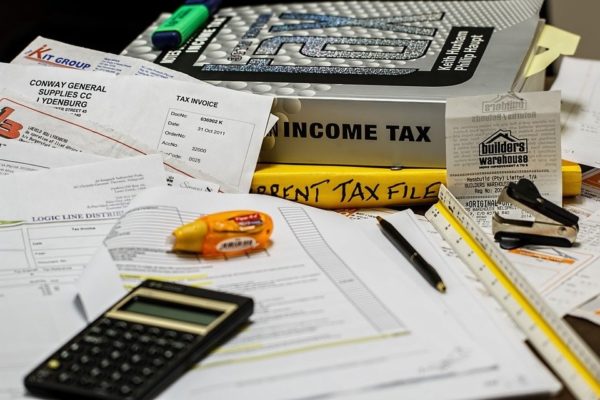The wonders of technology are no surprise to anyone. It is changing the dynamics of markets, businesses, employee’s work, and interactions with each other. With the evolution of fintech and cloud computing, the role of technology in taxation is also growing.
In today’s world, technology is not only focusing on efficiency but is making every possible effort to enable a robust and independent tax collection system. After all, the increasing tax functions have to leverage technology to drive greater efficiency, improve processes, and manage risk. Digital tools give real-time access to data and analytics while heightening the expectations for transparency.
Believe it or not, corruption is one of the significant problems in every country, and effective management of public funds closes doors for illegal practices. Thus, companies are actively implementing strategies and pursuing initiatives around tax technology. It is making a significant contribution to fight against corruption by saving people from the hustle-bustle of filing returns.
If you are clueless about it, look below to understand the role of technology in promoting transparency in taxation.
1. TAX DATA MANAGEMENT
Previously, disparate systems and data sources were making it difficult to locate documents, while employees spent months on paperwork. As a result, it was challenging to maintain accuracy in tax calculations, managing tax liabilities, and mitigating risk. With sprouting regulatory controls, higher transparency requirements, and stricter deadlines, tax management systems have become a necessity.
Surprisingly, tax technologies can combat these problems by streamlining and validating the data beforehand. It aligns all your tax records, data, and computes tax amounts automatically. These systems have built-in features that capture missing information, review tax filings, and get them approved by tax experts or auditors. Moreover, it also assists in decision-making processes, especially in areas with the detection of risk or identification glitches.
2. E-ADMINISTRATION
Automation promises a paperless working environment, and a shift towards e-administration is changing workplace practices. It is introducing the option for online filing of tax returns and online payments. You have to log-in to the portal, submit all the documents specified, fill in the application, and you are good to go. After all, people no longer have time to spend hours standing in queues for filing returns.
The electronic tax return systems are benefiting everyone in the economy – taxpayers, government, and businesses. Taxpayers experience a convenient arrangement that reduces compliance efforts and streamlines payment of taxes. It reduces the administrative burden on the government due to the direct provision of taxpayer’s information. Lastly, for businesses, it simplifies compliance of corporate income tax and value-added tax.
3. ROBOTIC PROCESS AUTOMATION (RPA)
Robotic process automation is another evolution in the taxation industry. It facilitates a virtual workforce of software robots that can work a lot faster and inexpensively than humans. Likewise, they can take higher volumes of tasks beyond human capacities, such as their ability to work 24/7 without coffee or tea breaks.
Are you wondering how it works? Firstly, it exports data from ERP systems, trail balance, and ledgers. Next up, they convert data into tax-basis – calculating tax book differences, evaluating options for tax treatments, and reviewing tax returns. After this, they prepare returns by filling applications and account for taxes. Lastly, they address all tax inquires through audit response strategies.
Hence, you can automate repetitive and monotonous tasks, allowing you to utilize workers for their core competencies. You can focus on the higher value of work – researches, planning, and critical analysis of the changing tax policies in your sector.
4. BLOCKCHAIN TECHNOLOGIES
The overgrowing usage of digital tools can leave users vulnerable to cyberattacks from hackers. Taxpayers are likely to carry out their transactions through digital ledgers, but they cannot afford to risk confidential information. Therefore, to ensure the efficiency of the tax collection system, the government is adopting blockchain technologies.
Alongside providing a secured network, it reduces the administrative tax burden and associated costs with tax collection. Hence, taxpayers rejoice in a transparent tax collection system, eliminating any additional or hidden charges. Likewise, the government reaps the benefits of low tax expenditure, higher accountability, and reduced tax evasion with the help of blockchain technologies.
5. RISK MANAGEMENT THROUGH ARTIFICIAL INTELLIGENCE (AI)
Surprisingly, artificial intelligence is the next big thing because of its consistent efforts to open up new opportunities in different fields. In taxation, it is supporting the aim of transparency to eliminate fraud and tax evasion. It is loaded with a plethora of information, including different tax codes, administrative guidelines, and policies, allowing you to make evidence-based decisions.
Honestly, bribing has adverse effects on the economies, destroying growth prospects. Anti-corruption laws fail to make a difference because of the lack of monitoring in the tax sector. Fortunately, AI systems keep a close eye on everything, increasing transparency.
Moreover, tax teams hold the bag for classifying documents to identify the risk of defaulters. Artificial intelligence can extract critical data from tax documents in seconds with the help of algorithms. Similarly, AI systems can sense fraudulent and bogus entries is large datasets. Thus, governments can also use it as a tool to combat tax evasion, which is a standard problem in many countries.
BRINGING IT TOGETHER,
In today’s dynamic environment, adequate infrastructure is not enough. You have to keep up with legislative and technological changes to boast a culture of higher efficiency. Technology is elevating the function of taxation by improving accountability and accessibility for taxpayers. It gives them reasons to become a registered person while allowing the government to manage public funds adequately.






